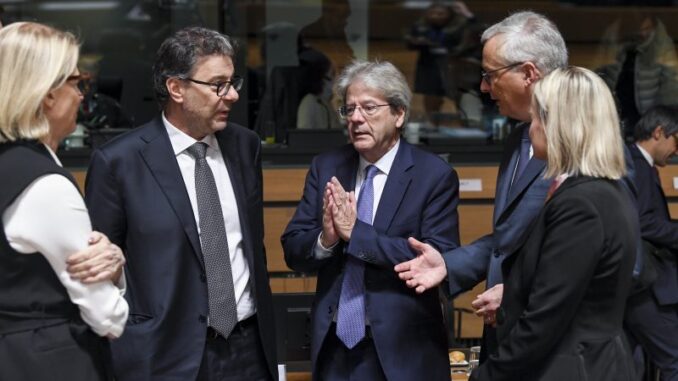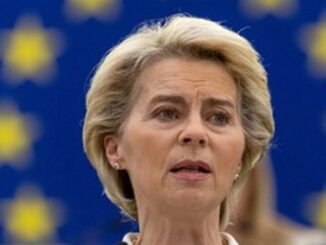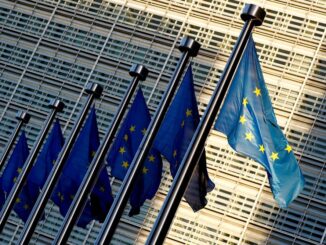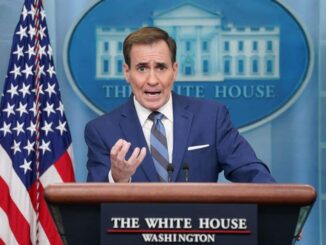
EU member states do not seem to consider as a priority the Belgian EU Council Presidency’s compromise proposal to revise the EU’s Energy Taxation Directive, meaning it may not be finalised before the EU elections in June.
Read the original French story here.
Belgium, which holds the EU presidency until July, sent its proposal to revise the EU Energy Taxation Directive to EU countries in early February.
Euractiv obtained a copy of the document, which is a follow-up to proposals put forward by the previous Swedish and Spanish EU presidencies and aims to further reconcile the interests of individual member states,
The Belgian proposal has yet to be examined by EU countries at a working meeting scheduled for Thursday (29 February). However, it appears there is no hurry as EU countries do not see the issue as a priority, Euractiv France has learnt from EU countries and industries sources familiar with the matter.
This could mean that the revision will not be adopted before the European elections.
The Energy Taxation Directive was first introduced in 2003 to set minimum tax levels for energy products, fuels and electricity. In 2021, the Commission proposed a revision to ensure that the minimum tax thresholds for decarbonised energies are lower than those applied to carbon-based sources.
But between the war in Ukraine and the austerity veto on fiscal issues, “the negotiations have not made much progress” in 2023, despite proposals put on the table by the Swedish and then Spanish EU presidencies, a European diplomat told Euractiv France.
Even in 2024, “the ETD is not at the top of the list of issues that will be the subject of an agreement in the near future,” the diplomat continued.
Member states’ stances
However, another European diplomat assured Euractiv France that some member states are ready to be “helpful” but are in no hurry.
The Belgian presidency, for example, has already indicated that wood and charcoal will be exempted from the minimum tax threshold, “given the firm position of a large number of [national] delegations”.
In Paris, the office of French Economy and Energy Minister Bruno Le Maire told Euractiv France that “we will be vigilant to ensure that [the Belgian proposal] does not run counter to the Commission’s initial draft and does not contribute to the distortion of the internal market in a way that is unfavourable to French interests and the environment”.
The Commission’s proposal provided for a hierarchy of minimum tax thresholds according to the environmental performance of energy products, with the exception of a single tax threshold for electricity, regardless of the production method.
It is therefore not a question of adopting a text as quickly as possible, but of finding the right balance,” said Le Maire’s office, which “will continue to participate constructively in the discussions”.
The right balance means that each member state will be able to claim its own exemptions, which could take some time and delay the adoption of the text.
EU Parliament, member states and industry
At the same time, the European Parliament has not yet given its opinion, which is essential if member states are to decide on the matter.
“We are still studying the proposal and have not (yet) made a final analysis of it,” Belgian conservative MEP Johan van Overtveldt (ECR), who is in charge of the dossier for the European Parliament, told Euractiv France.
Two days before member states start informal discussions on the dossier on Thursday, many delegations have not yet looked at the proposal. Of the seven delegations contacted by Euractiv France on the issue on Monday, the five that replied said they had not studied the dossier extensively.
France was among them, with Le Maire’s office admitting that “the position on the latest draft compromise initiated by the Belgian Presidency has not yet been defined”.
A number of European representatives from the electricity, chemicals, sustainable fuels, and steel industries also told Euractiv France that they did not have a firm position on the Belgian proposal.
“I have the impression that the compromise has not really been read because nobody believes it will succeed,” a representative of the European electrical industry said.
Matthieu Toret, an energy tax lawyer at Enerlex Avocat, also said that “given the highly strategic nature of energy and the current geopolitical situation, we are betting on a few more years of discussions before a compromise is reached and a few more years to transpose that compromise into national law”.
[Edited by Zoran Radosavljevic]



